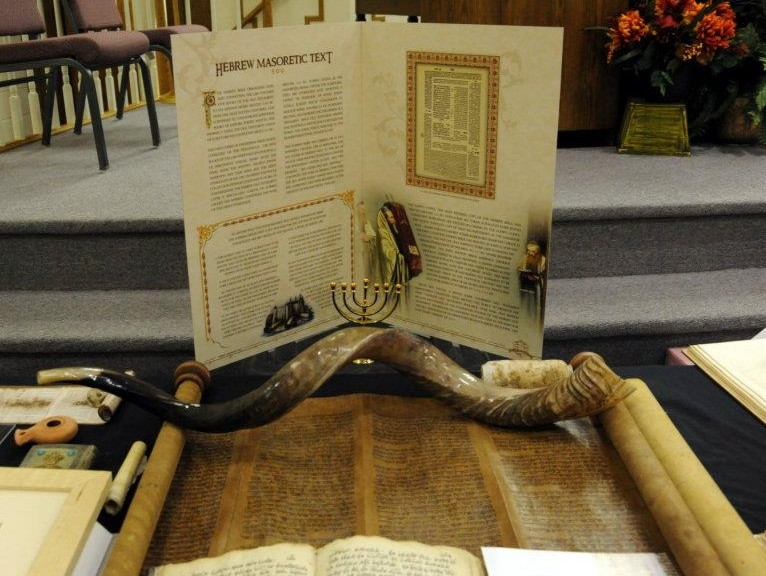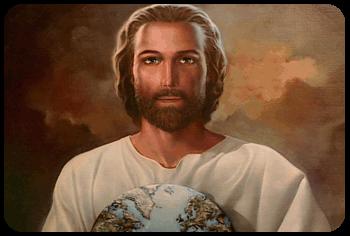
|
|
 |
|
**List: Hebrew Ministry the Bible ( התנ"ך {the Tanakh} )
|

עברית / Hebrew Bible History (2) 
**List: Hebrew Ministry
the Bible ( התנ"ך {the Tanakh} )
Hebrew...
"The language of the ancient Israelites and of the Hebrew nation, and
the original language of the Old Testament except for some Aramaic
(Chaldee) passages in Daniel, Ezra and Jeremiah. Hebrew originally
records only the consonant sounds, the vowells being supplied by the reader.
At some time between the 6th and the 11th centuries, A. D., the tradi-
tional vowels were supplied by Jewish scholars known as Massoretes.
[One of t]he oldest Hebrew manuscript[s] of the Scriptures extant is a copy of the
Pentateuch written in the 9th century, now in the British Museum,London. At Oxford there is a copy of almost the entire Old Testament
written in the 10th century."--1000 Tongues, 1939 [Info only]
"When the Hebrew Bible began to be printed, the manuscripts
used were vastly more uniform than those of any other ancient
book. Jewish scribes, united in fixation of the sacred text since
at least the fifth century of our era, had so standardized the busi-ness of copying and the precise form of what was to be copied,
--1000 Tongues, 1939 [Info only:
that even [minor editions], were passed along from age to age. [And
the simple solution of a pure text.] For to reach
back of this iron-clad tradition of copyists and scribes to, or even
towards, the original texts as they left the hands of their authors,
scholars of today must in some way [depend on] these bonds.
That is [an issue] for specialists in the [Hebrew (Masoretic Text)] and
other versions of the Old Testament...for experts in
the transmission of the Hebrew text itself.
Publishers of the Hebrew Bible have for the most part at-
tempted merely to collate the largest possible number of manu-
scripts, giving minute attention to such [details] in them as
exist, and to the places where Jewish tradition has [existed.]"
Beware of CT conjecture, etc.
Kittel, and the German scholars often used rationalistic methods.]"Being the original language of all but a few chapters of the
Old Testament, Hebrew belongs among the "versions" of Scrip-
ture only in virtue of the modern translations of the New Testa-
ment into Hebrew for the use of Jewish readers educated in their
ancient tongue.
Of all the New Testament books the Gospel of Matthew and
the Epistle to the Hebrews were naturally regarded as most suit-
able to turn into the language of scholars who, as Jews, accepted
the Old Testament, but drew their impressions of Jesus Christ
from polemical anti-Christian writings, often scu. in charac-
ter, rather than from the authentic documents of the Christian faith.
How early Christians may have begun to make such versions
into Hebrew we have no means of knowing. But the earliest
printed editions of New Testament portions in Hebrew were
drawn from manuscripts of much earlier date. The first of all
these was a revision by Sebastian Munster of a translation made
by a 14th century Spanish Jew of the Gospel of Matthew. Though
published at Basle, it is dedicated to King Henry VIII of Eng-
land. It was re-issued several times during the 16th century,
together with a version of Hebrews, also controversial tracts
designed to meet Jewish arguments. The same text of Matthew
was issued independently at Paris in 1551. But another Paris
Matthew, printed only four years later, was derived from a
manuscript found at Rome, the author of which is unknown.
Christian Jews had published their versions of Mark and Luke in
the sixteenth century, before Hutter, at its close, issued a polyglot
New Testament in which for the first time the entire New Testa-
ment in Hebrew saw the light. It was not until 1661 that a
separate Hebrew New Testament existed, when Robertson, a
British scholar, revised Hutter’s polyglot version of 1599. The
many revisions of this Hutter version bring the matter down to
the latter part of the nineteenth century, when the entirely fresh
translations of Franz Delitzsch [1885] and of Salkinson (completed by
Ginsburg) marked a fresh stage in the effort of the Church to give
the Jews a worthy New Testament in Hebrew."--1000 Tongues, 1939 [Info only:
I. Salkinson & C. D. Ginsburg NT has some CT.]
[Christian Helps Ministry (USA)] [Christian Home Bible Course]